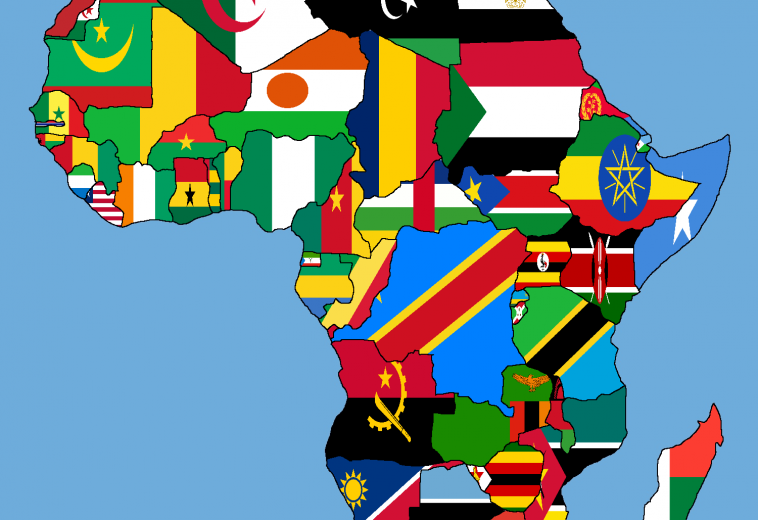Gazing back from a future standpoint, the inquiry into Nigeria’s readiness for the “next COVID” carries substantial weight. The COVID-19 pandemic in the early 21st century acted as a poignant reminder of societies’ susceptibility to emerging infectious diseases. This article delves into Nigeria’s state of readiness for forthcoming pandemics, leveraging historical archives, progress achieved since the COVID-19 era, and potential lingering challenges. Nigeria’s preparedness for the subsequent pandemic is contingent upon its capacity to glean insights from past encounters.
Healthcare Infrastructure and Capacity
One of the most critical factors in Nigeria’s preparedness against future pandemics is the strength of its healthcare infrastructure and capacity. The country faces significant challenges in this regard, including a shortage of healthcare facilities, inadequately equipped hospitals, and limited access to essential medical supplies and personnel, particularly in rural areas. While efforts have been made to expand healthcare infrastructure and improve access to healthcare services, significant gaps persist, leaving millions of Nigerians vulnerable to the impact of infectious diseases.
In response to the COVID-19 pandemic, Nigeria ramped up efforts to enhance its healthcare infrastructure and capacity. Temporary treatment centers were established, diagnostic testing capacity was expanded, and healthcare workers received training in infection prevention and control measures. Additionally, the government implemented measures to strengthen the primary healthcare system, improve disease surveillance and response mechanisms, and enhance coordination between various stakeholders in the healthcare sector.
However, sustaining these gains and further strengthening healthcare infrastructure and capacity will require continued investment, innovation, and collaboration. The government must prioritize healthcare as a fundamental human right and allocate adequate resources to ensure universal access to quality healthcare services for all Nigerians, regardless of their socio-economic status or geographical location.
Disease Surveillance and Response
Effective disease surveillance and response mechanisms are essential for early detection, containment, and mitigation of infectious disease outbreaks. In Nigeria, the capacity for disease surveillance and response has improved in recent years, thanks in part to investments in public health infrastructure and the establishment of the Nigeria Centre for Disease Control (NCDC). The NCDC plays a central role in coordinating disease surveillance, outbreak investigation, and response activities across the country.
During the COVID-19 pandemic, the NCDC led the national response effort, conducting widespread testing, contact tracing, and isolation of confirmed cases. The agency also provided timely updates and guidance to the public, healthcare workers, and policymakers, helping to raise awareness about the virus and mitigate its spread. Additionally, the NCDC collaborated with international partners, including the World Health Organization (WHO) and the Africa Centres for Disease Control and Prevention (Africa CDC), to leverage technical expertise and resources in the fight against COVID-19.
While Nigeria’s disease surveillance and response capabilities have improved, there are areas for enhancement, including the need for greater investment in laboratory infrastructure, expansion of diagnostic testing capacity, and strengthening of health information systems. Moreover, efforts to build local capacity for research and development of vaccines, therapeutics, and diagnostics will be critical for future pandemic preparedness.
Vaccination and Immunization
Vaccination is a cornerstone of public health and a critical tool for preventing the spread of infectious diseases. In the case of COVID-19, vaccines have played a pivotal role in controlling the pandemic and reducing the burden on healthcare systems. In Nigeria, efforts to vaccinate the population against COVID-19 have been underway since the arrival of the first doses of vaccine in early 2021. The government, in collaboration with partners such as the COVAX initiative, has rolled out vaccination campaigns targeting priority groups, including healthcare workers, the elderly, and individuals with underlying health conditions.
Despite progress in vaccine rollout, Nigeria faces challenges related to vaccine hesitancy, supply chain logistics, and equitable distribution of vaccines. Disinformation and mistrust of vaccines have fueled hesitancy among some segments of the population, posing a barrier to achieving high vaccination coverage. Additionally, logistical challenges, including cold chain storage requirements and transportation infrastructure limitations, have hindered the efficient distribution of vaccines to remote and underserved areas.
To overcome these challenges and ensure widespread vaccination coverage, Nigeria must adopt a multi-faceted approach that addresses barriers to vaccine acceptance, strengthens vaccine delivery systems, and enhances community engagement and trust in immunization programs. Investing in public education campaigns, leveraging community influencers and religious leaders, and strengthening collaboration between the government, civil society, and the private sector will be essential for overcoming vaccine hesitancy and achieving herd immunity against COVID-19 and future pandemics.
Socio-Economic Impacts and Vulnerabilities
The COVID-19 pandemic has exacerbated socio-economic disparities and vulnerabilities in Nigeria, exposing millions of people to poverty, food insecurity, and other adverse outcomes. The lockdown measures implemented to contain the spread of the virus had a profound impact on livelihoods, particularly for informal workers and those employed in the informal sector. School closures disrupted education for millions of children, exacerbating learning inequalities and widening the gap between the rich and the poor.
As Nigeria prepares for the next COVID, addressing socio-economic vulnerabilities and building resilience against future shocks must be a priority. This entails strengthening social protection systems, expanding access to quality education and healthcare, and promoting inclusive economic growth that benefits all segments of society. Investing in job creation, skills development, and entrepreneurship opportunities can empower individuals and communities to withstand economic downturns and build a more prosperous future.
Furthermore, addressing underlying determinants of health, such as poverty, inequality, and inadequate access to basic services, is essential for improving population health outcomes and reducing vulnerability to infectious diseases. By adopting a holistic approach that addresses the root causes of socio-economic disparities and vulnerabilities, Nigeria can build a more resilient and equitable society that is better prepared to confront future health crises.
Nigeria has made significant strides in enhancing its preparedness against future pandemics, including the next COVID. Investments in healthcare infrastructure, disease surveillance and response, vaccination and immunization, and socio-economic development have laid the foundation for a more resilient and responsive health system. However, significant challenges remain, including the need to address healthcare infrastructure deficiencies, strengthen disease surveillance and response capabilities, overcome vaccine hesitancy, and address socio-economic vulnerabilities.
As Nigeria steers the complexities of the COVID-19 pandemic and prepares for future health crises, it is essential to adopt a multi-sectoral approach that engages stakeholders from government, civil society, the private sector, and communities. By working together collaboratively and leveraging collective expertise and resources, Nigeria can build a stronger, more resilient health system that protects the health and well-being of all its citizens, now and in the future.


